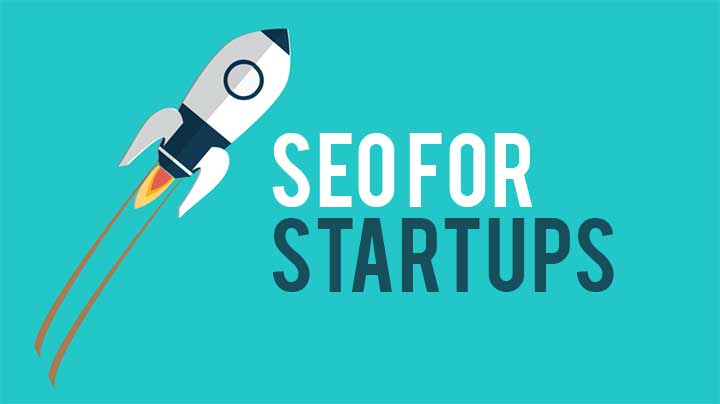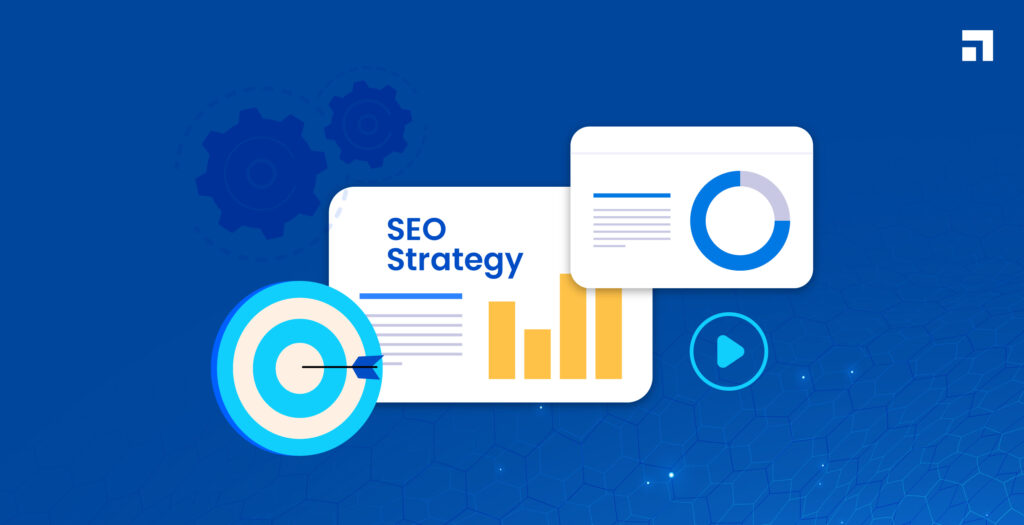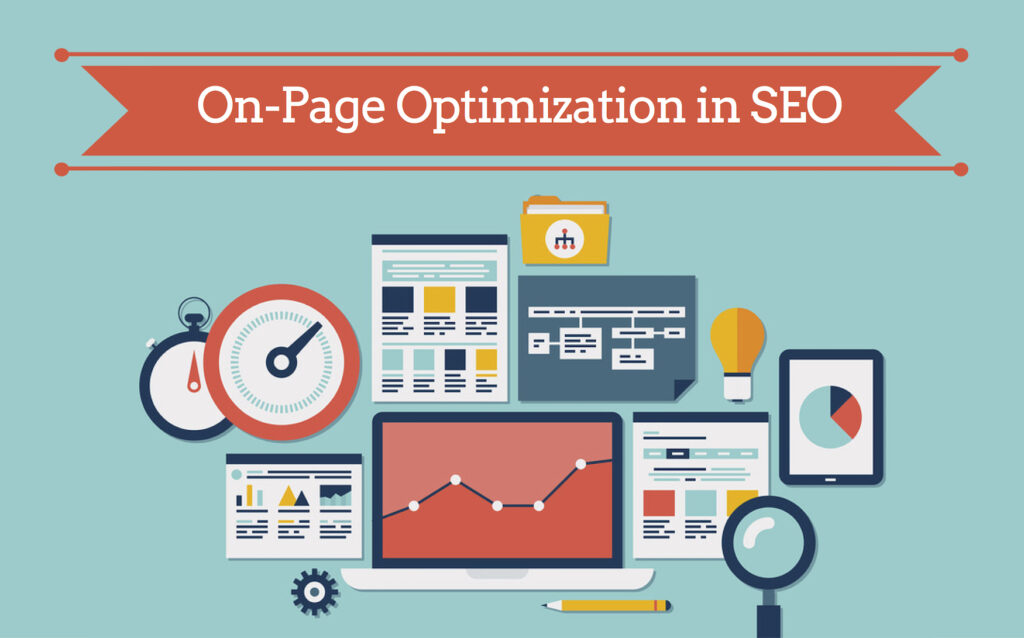
As a start-up, the most important thing you need to do is find your target consumers to start your online business. One of the best ways, that makes it possible is through search engines.
Unless you are not in the eye of your audience, how can you even think that they will search your brand name? That’s the reason search engine optimization (SEO) can never be an afterthought for start-ups. In fact, you must consider SEO as an important and initial step when planning your business.
On the other hand, you can implement various SEO strategies to boost your brand promotion on various search results. A startup SEO an important strategy for the development of his business plan is more likely to achieve amazing results. It is achieved by building the necessary foundations for starting an SEO business.
Wondering how can startups achieve a successful SEO?

This post will clear all your doubts and guide you on how to implement SEO for startups and how it can act as a miracle for your initial game plan.
For startups working with limited budgets, choosing Affordable Managed Web Hosting is a practical step that ensures fast performance, strong security, and technical stability—allowing founders to focus on SEO and growth rather than server management.
For example, startups offering niche solutions like pharmacy management software in Oman face the same SEO expectations as established brands, making it essential to get the fundamentals right to compete effectively in search results despite limited resources.
Search engine optimization can be complicated for any business, but as a startup, you’ve got a real challenge on your hands. First of all, you need to create a quick impact to get things moving and start building grip before anything goes out of hand.
This might be the reason for startups taking shortcuts with SEO, hoping to speed their path to search ranking glory.
Here we bring an ultimate guide that will clearly explain how startups can proceed with SEO to get quick results that last and thereafter how to supercharge your search strategy.
So, if you are preparing a start-up game plan? This article is definitely for you.
Here’s an overview of what are the topics covered in this guide:
Let’s check out one by one!
Honestly speaking, nothing except the scale of the challenge. Google does not care if you’re a startup, own a big brand, the smallest online retailer, or a major financial institution, it only cares about connecting people for each search query, with the most suitable content.
The SEO requirements for a startup are the same as that of a bigger brand. Usually, search engines look upon the same things from you as from any other business. You can also find the right SEO tool, for the SEO success.
It’s mainly the scale of the challenge that makes difference for most of the startups. As a startup, you might not have the resources of a large business, but your goal is to compete with bigger brands and grow as quickly as possible.
To compete efficiently with limited resources, many startups now rely on a focused GEO/AEO service to ensure their content is structured for search engines, local intent, and AI-driven answer platforms without compromising on SEO fundamentals.
Well, for many startups, this actually means undertaking SEO on a small business budget, which comes with a few settlements. But the problem here is, when it comes to search optimization Google doesn’t accept compromises and you need to get the basics to move forward.
Relax, as soon as you achieve these strategies, the faster you’ll be able to create a self-sustaining SEO strategy that won’t bother you in case of the budget later, and this way your startup can leads to become the best international seo agency.
What are the requirements of search engines?

As mentioned above, Google is not bothered about what kind of business you are or you are a startup, search engines have their own agenda. In the case of SEO, it’s all about achieving high rankings in search result pages, that provide the following:
It is very important to create quality content and with a great user experience while covering the technical optimization requirements, and this is what search engines and users really want from you.
Phrases like “quality content” and “great UX” have an issue as they are entirely ambiguous. So, now the question comes, how do search engines measure these qualities when they only have data that are not flexible?
Links still remain one of the top three factors, even though Google has hundreds of ranking factors that are actively working in its core algorithm. Basically, content is likely to be engaging when it is received from the trusted sources, high-quality stuff. In this case, the quality of the link matters and not the quantity.
Keywords
Google’s Algorithm has been significantly changed over the years and one of them is, how it utilizes the keywords to match relevant content to queries. Gone are those days, when the search terms were simply matched to the keywords on your page. Now, it’s the time when Google’s machine learning algorithms match the topical relevance of your content only related to user searches.
Google uses a combination of UX signals mainly to gain information about how good the experience is on your pages. This method includes content replacement, mobile friendliness, secure encryption, loading times, and the navigation of your site.
If you wish to know, how engaging your content is, you can check out the average time on page, bounce rates, and the number of pages visited per session. Google can do exactly the same.
Using a professional book cover creator helps improve your visual SEO by increasing image engagement, reducing bounce rates, and boosting overall content visibility in search engine results.
On the other hand, if a user clicks through to your site, then clicks on another listing (called “pogo-sticking”) soon after returning from the result pages, it clearly denotes that you haven’t provided what this person is looking for.
Location

Here, Uber and Quickride competing in the SERPs for the query “get a ride in Delhi”
For example, a Moving Company can benefit greatly from SEO by targeting location-based keywords and optimizing their Google Business Profile to attract nearby customers searching for reliable moving services.
Mainly the SEO strategies depend upon the nature of your startup if the location is coming into your SEO. This is a very important factor in terms of relevance for suitable searches. If location plays a key role in your startup then you must definitely consider this.
Creating a website for SEO
It might be appealing to hold together a website and simultaneously sign up to the cheapest hosting provider you can find, but this can limit your growth prospects.
As we’ve already focussed on the above that, user experience and engagement factors are an important part of your search marketing strategy and this clearly means that it’s time to create a website for SEO.
But before building an SEO friendly website, there are five key areas to think about:
As a startup, just keep one thing in mind that your goal is to grow as quickly and sustainably as possible. Choosing the wrong hosting package can hamper your plan and the worst way to get things going. Page loading times are largely determined by the quality of your hosting services.
The package you sign up for will usually set a limit on the number of visitors, that can access your site along with how much data can be transferred from your site to them. This means, if your startup exceeds your hosting package, visitors won’t be able to access your website.
You also need to take care of other factors such as the uptime record of your service provider, what additional performance features are available (e.g. web cache, CDN, etc.), and what security system they have in place.
#2: Code
Code is known to be another important factor in website performance. This affects everything starting from the way search engines access your website to how quickly your pages are loading and the mobile experience that you provide.
You must be aware that clean, fast code is important if you’re using WordPress themes or other CMS platforms that usually come in an expanded code. Despite its creation is chunky, one of the key benefits of using WordPress is its structure of templates. These templates allow you to easily create new pages and content in a visual interface, rather than code everything you can do by yourself.
Create your own templates for new pages and important elements in order to avoid typing the same code while creating your website from scratch. In addition to this, make sure you’re familiar with dynamic web pages. It will help you to edit necessary elements like your website’s header in one place rather than making the same changes manually across every page.
#3: Design
Then comes the design, which has also a key role in website creation. The search engine can interpret the basic layout and navigational structure of your pages but can’t see the visual design of your website, as long as you mark them up correctly.
Now, when you have UX signals, we looked at earlier to think about, that directly affects your as things stand. User experience is only a direct ranking factor for mobile pages but that does not mean engagement signals and UX aren’t going to damage your desktop ranking as well.
If your bounce rates are well and good and your loading times are not active, you’re not giving any reason to Google for recommending your pages to users on any device.
#4: Content
Content is something that people turn to search engines in the first place. And being able to produce what they’re looking for will finally show how successful your SEO strategy is.
#5: On-page optimization

On-page optimization grabs lots of attention, so most probably no need to go into details here. It’s essential you get this right for every page that you are publishing. You can avail lots of guides on this subject and, once you’ve got a hang of it, it’ll be an effortless part of your SEO strategy.
Here we bring you few things you need to cover:
Creating a website for SEO at the starting day can relax you from getting in some trouble and saves your money. There are other basic SEO strategies you can use to excel in your brand promotion.
Implement these five essentials right now and you’ll have a platform for life that only requires a few twists as your startup progresses.
What are the strategies for great SEO content?
One of the biggest challenges those modern businesses face is to create quality content mainly when there is a shortage of resources. The first thing you need to do is create good content and thereafter find a way to produce a high enough volume of it.
The main aim is to produce high-quality content including the following:
The great news is that by nature startups tend to be innovative so, there’s a very good chance that you’ve already something unique and a better understanding of your audience.
Nowadays, there are many brands struggling with this issue, but it should not bother you. As you have something to take advantage of, so create highly compelling content and try to make the most of it.
Implement a high technology startup SEO
We already know that quick and sustainable growth is everything for a startup business, but search optimization is a slow process where shortcuts cause various problems than they solve.
Fortunately, automation is rapidly increasing and this helps us to cut out a lot of the repetitive SEO workload.
Maybe it’s not that easy to achieve high rankings overnight but yes, you can definitely save lots of time and money with the help of repetitive tasks in order to focus all your efforts on other things.
To justify this statement, let’s check out some of the SEO tasks which are important for you as a startup.
Try something new if you are tired of repeating the same thing over and over again, for example, writing alt descriptions. You may not be able to do everything but you can utilize most of your time and reduce a lot of human error when it’s possible for you.
The more you customize your SEO strategies, the more you get time to focus on other useful tasks such as content creation, strategic decision-making, and many more. This is a very useful “hack” for startups that can benefit your industry in long run.

The following questions about search engine optimization are asked most often, so we thought of including them in our article:
No, not exactly, but yes you can promote your content on social media platforms. You may be thinking about sharing your content in order to increase engagement with the audience.
Unfortunately, it is known to everyone that without paying you cannot boost the promotion. Social media alone is not enough to get your content to be in front of the users.
This actually depends on various factors, but yes, it can take 6-12 months to start seeing results for your SEO efforts.
If you are own a small business with fewer resources, getting leads through paid channels such as Google Ads (PPC) can become unjustified, even though it is faster than SEO. If you have enough cash to spend then, you can definitely go for both SEO and PPC strategy working together.

No, it’s not. No need to pay for that overpaid consultants and costly software. Just invest your valuable time and money in your SEO efforts, and you’ll eventually notice profits with big payoffs.
Isn’t SEO too competitive for startups?
Well, today everything is competitive and so does with digital marketing, so it should not stop you. No matter, whether it’s content creation, launching a product, Google Ads, content creation, growing a podcast, it is all going to be saturated.
But, on the other hand, if you wait for a longer time, then it can affect your business. So you might get into the game now and start building a foundation for your startups.
Final Words
It’s not an easy feat to develop an online presence for your startup, but with the help of these tips, we can hope that you are very close to achieving success. With the implementation of these effective startup SEO tactics, you can compete with other brands.
Never miss an opportunity that these search engines provide you that is traffic. Generating traffic is the best way to make your brand more popular and start your business.
Whether you wish to start the best SEO for startups, your brand is already being searched by the audience. Are you ready to make an online presence for them? Check out Tachomind’s additional digital marketing strategies and boost your business growth.? Get in touch with us for any information related to SEO-related strategies or other marketing tactics, and we’d be glad to help you!
Hope it helped!
